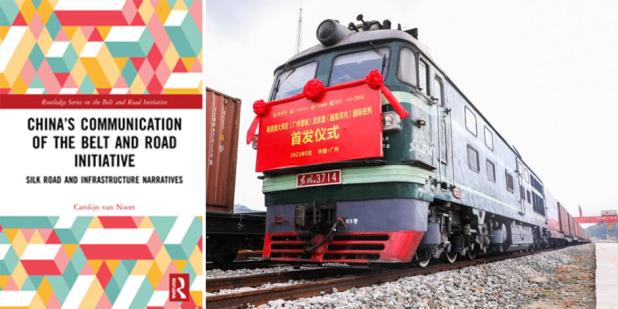Join us for a free one-day workshop for educators at the Japanese American National Museum, hosted by the USC U.S.-China Institute and the National Consortium for Teaching about Asia. This workshop will include a guided tour of the beloved exhibition Common Ground: The Heart of Community, slated to close permanently in January 2025. Following the tour, learn strategies for engaging students in the primary source artifacts, images, and documents found in JANM’s vast collection and discover classroom-ready resources to support teaching and learning about the Japanese American experience.
Carolijn van Noort on China’s Belt and Road Initiative Narratives

China’s Belt and Road Initiative is a huge multi-continent undertaking and the subject of much attention in and outside of China. In her just released book, China’s Communication of the Belt and Road Initiative: Silk Road and Infrastructure Narratives, Carolijn van Noort examines China’s international political communication about the project. Professor van Noort argues that China’s aesthetic production of the Belt and Road Initiative advances China’s image as an infrastructure and standards-setting power. She writes that China works to create a narrative highlighting historical continuation of friendly and cooperative relations and China’s identity as good neighbor, good friend, and good partner. The book explores China’s selective uses of history in its presentation of the initiative and its specific communication efforts via its Belt and Road Forum and regarding specific projects in Kyrgyzstan, Kenya and the Maldives.
Video also avaialble on our YouTube channel.
 Carolijn van Noort teaches politics and public policy at the University of West Scotland. Her research focuses on the international political communication of rising powers. Her first book, Infrastructure Communication in International Relations, examined how rising powers communicate about infrastructure internationally. She’s published book chapters and articles in journals such as Global Society, Politics and Governance, and the Cambridge Review of International Affairs.
Carolijn van Noort teaches politics and public policy at the University of West Scotland. Her research focuses on the international political communication of rising powers. Her first book, Infrastructure Communication in International Relations, examined how rising powers communicate about infrastructure internationally. She’s published book chapters and articles in journals such as Global Society, Politics and Governance, and the Cambridge Review of International Affairs.
The event was moderated by Clay Dube, the Director of the USC U.S.-China Institute and Ben Lee, the Associate Director of the USC Annenberg School's Master of Communication Management program.
Featured Articles
Please join us for the Grad Mixer! Hosted by USC Annenberg Office of International Affairs, Enjoy food, drink and conversation with fellow students across USC Annenberg. Graduate students from any field are welcome to join, so it is a great opportunity to meet fellow students with IR/foreign policy-related research topics and interests.
RSVP link: https://forms.gle/1zer188RE9dCS6Ho6
Events
Hosted by USC Annenberg Office of International Affairs, enjoy food, drink and conversation with fellow international students.
Join us for an in-person conversation on Thursday, November 7th at 4pm with author David M. Lampton as he discusses his new book, Living U.S.-China Relations: From Cold War to Cold War. The book examines the history of U.S.-China relations across eight U.S. presidential administrations.




